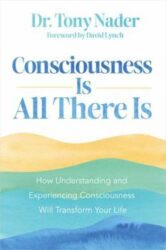Anxious About Health?

On a website discussion page, a woman confided, “…I have become so anxious about my health, every little ache, pain or twinge has my brain going mad! Before I would have ignored it or even not noticed it, but now I’m convinced it’s something really serious! It’s ruining every part of my life! I feel so anxious and worried all the time and it’s exhausting!”
About health anxiety
Anxiety about disease can protect us, but only insofar as it can motivate us to be alert to the onset of illness. It’s certainly not necessary to experience anxiety just as a reminder to be alert to our body’s changes. Also, anxiety itself is unhealthy, affecting the body in detrimental ways.
When it comes to health anxieties, there are two categories: One is called “Illness Anxiety Disorder,” which most people call hypochondria. The second type is called “Somatic Symptom Disorder.” These types of anxiety can be incapacitating.
Women with some degree of health anxiety have reported that they get obsessed about normal bodily functions such as their heartbeat, or frightened by simple physical changes such as the occurrence of a blemish, and worried over common discomforts or imbalances that crop up, such as bloating or headaches. Health anxiety might cause you to unnecessarily be preoccupied with a specific part of your body, like your heart, lung or brain, or with a disease like diabetes or cancer because a friend had contracted that illness or some mention of the disease was in the news.
These concerns might be baseless because our bodies normally produce sensations and noise that grab our attention yet are part of its normal function and not dangerous. If you start imagining that what you experience are symptoms of something unhealthy, your mind can trigger an internal alarm system with a cascade of effects like chest tightness, faster heartbeat, perspiring, nausea, shortness of breath and other manifestations of anxiety.
One woman reported, “I have had a fear of having a heart attack to the point I fear my own heartbeat. I have been suffering with this for a few years now. It is hard to live with this. I feel like my life is passing me by and I’m missing out because I’m always afraid.”
Eliminate anxiety
Because these reactions are, in themselves, creating real imbalances in our health, we need to cut them off at their root—the anxiety itself should be reduced or, better yet, prevented altogether. Otherwise we end up dealing endlessly with a variety of serious problems that can result from being anxious, from high blood pressure to stomach ailments.
The simple easy method of Transcendental Meditation has been shown by both subjective and objective evidence to reduce anxiety. The TM practice is deeply restful to the body and mind—calming the nervous system and reducing chemicals in the bloodstream associated with stress and anxiety—and found to be more effective than napping or positive thinking.
A meta-analysis published in 2013 in the Journal of Alternative and Complementary Medicine found that the Transcendental Meditation technique significantly reduces trait anxiety for people with high anxiety; individuals with anxiety levels higher than 90 percent of the rest of the adult population showed dramatic reductions in anxiety down to the 57th percentile from TM practice. An early study published in the Journal of Clinical Psychology showed that the TM technique is far more effective in reducing trait anxiety than techniques involving concentration or contemplation.
Women who were suffering from the offshoots of anxiety have found that learning the TM technique gave them an effortless way to be calmer, for their heart rate to decrease, and to be deeply rested. Their daily practice produced scientifically documented benefits that diminished anxiety’s side effects such as hypertension, insomnia, family problems and substance abuse.
Say adios to health anxiety
The Transcendental Meditation technique has been shown to significantly decrease the occurrence of a wide range of diseases, so fear of upcoming health issues is automatically lessened from that perspective. But women are more than twice as likely as men to get an anxiety disorder in their lifetime, possibly because of gender differences in brain chemistry and hormone fluctuations. When a woman grows physically healthier daily and her mind is more continually calm, then anxiety, with all its baseless dread, is left where it belongs—in the past.
Leave Health Anxiety Behind: Connect with a TM Teacher Today
About the Author
Janet Hoffman is the executive director of TM for Women Professionals, a division of TM for Women in the USA





